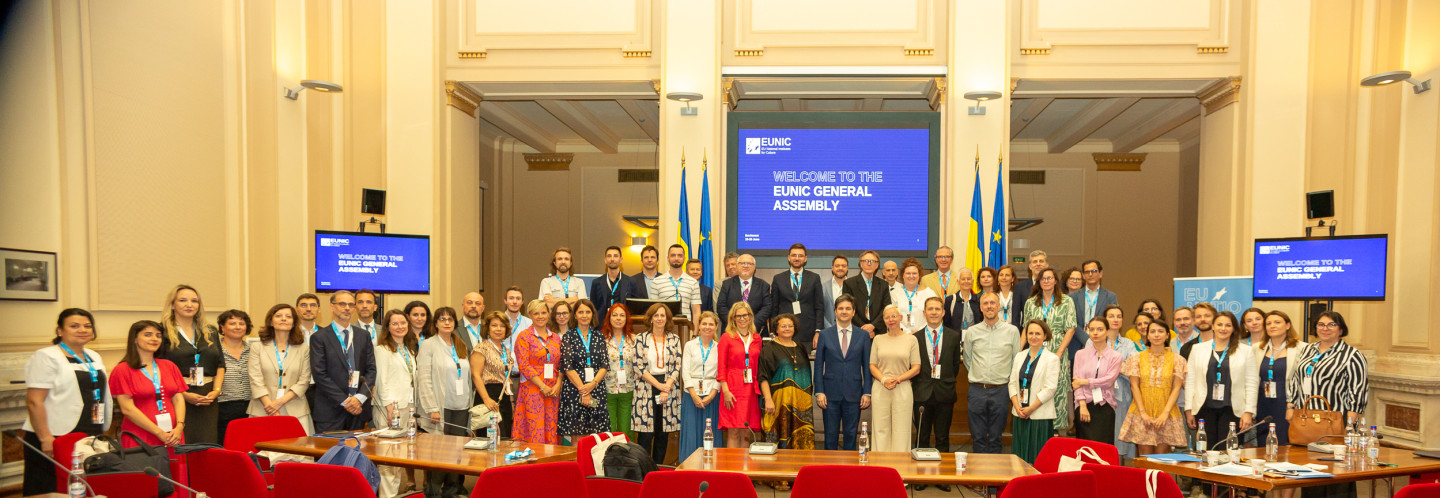
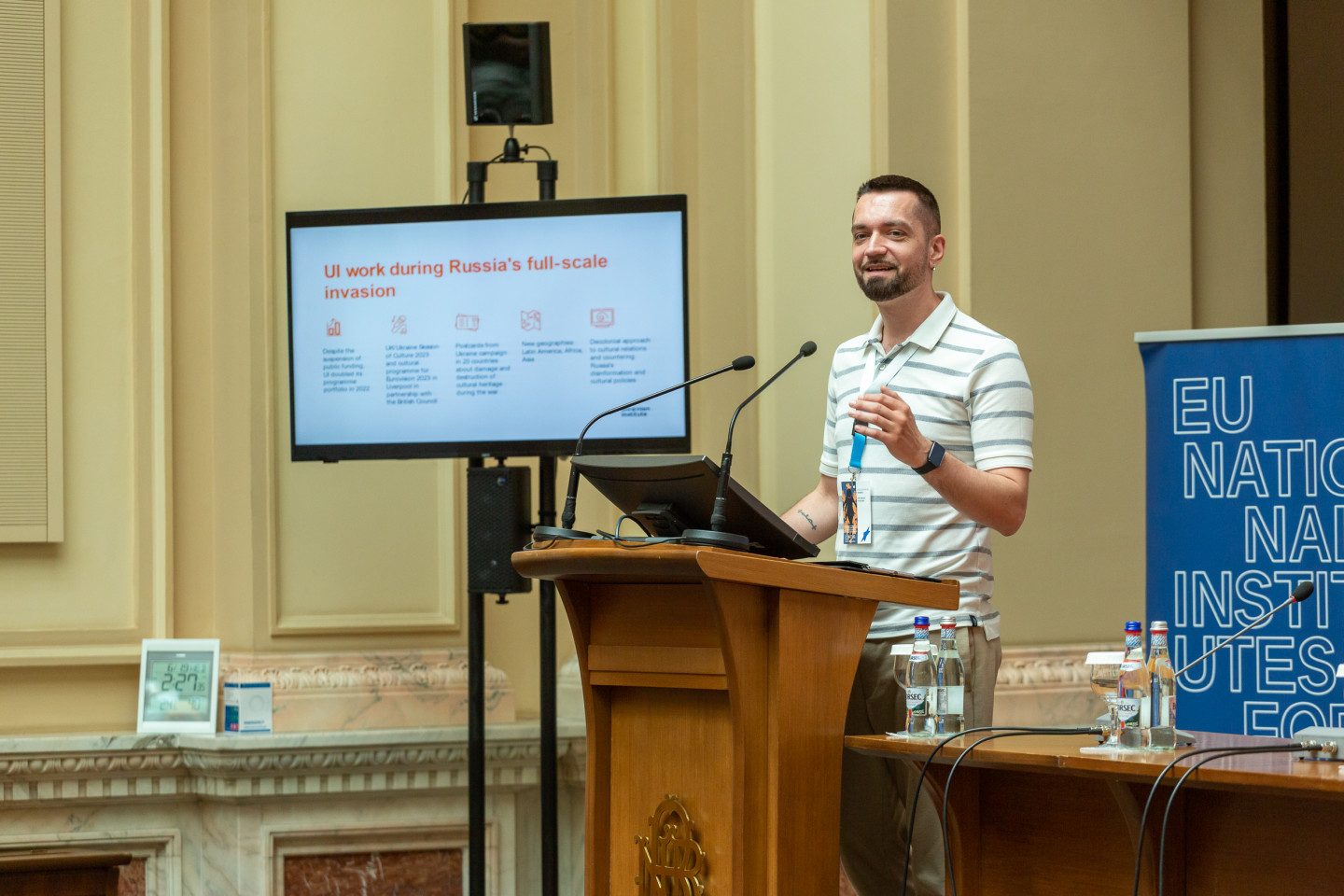
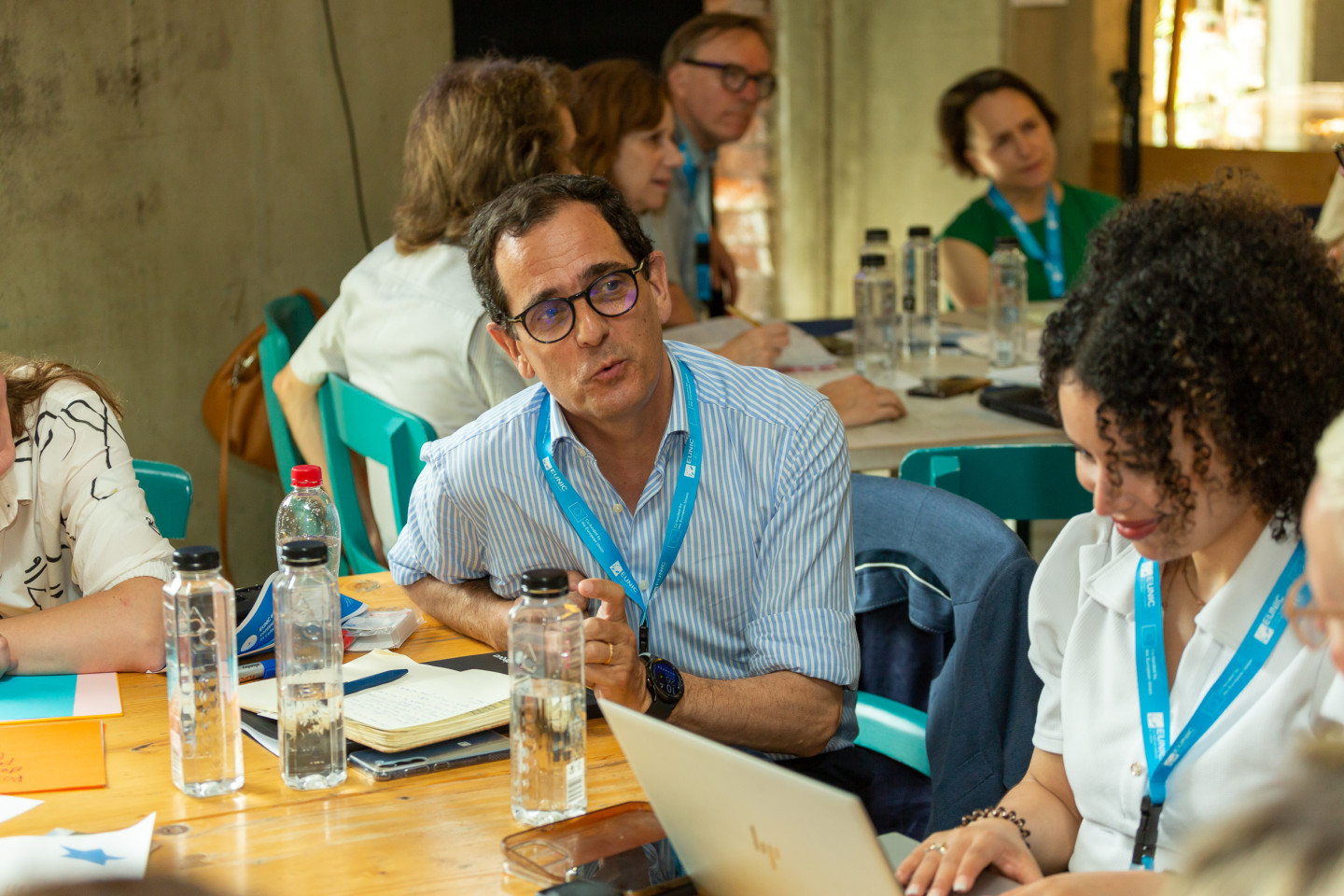
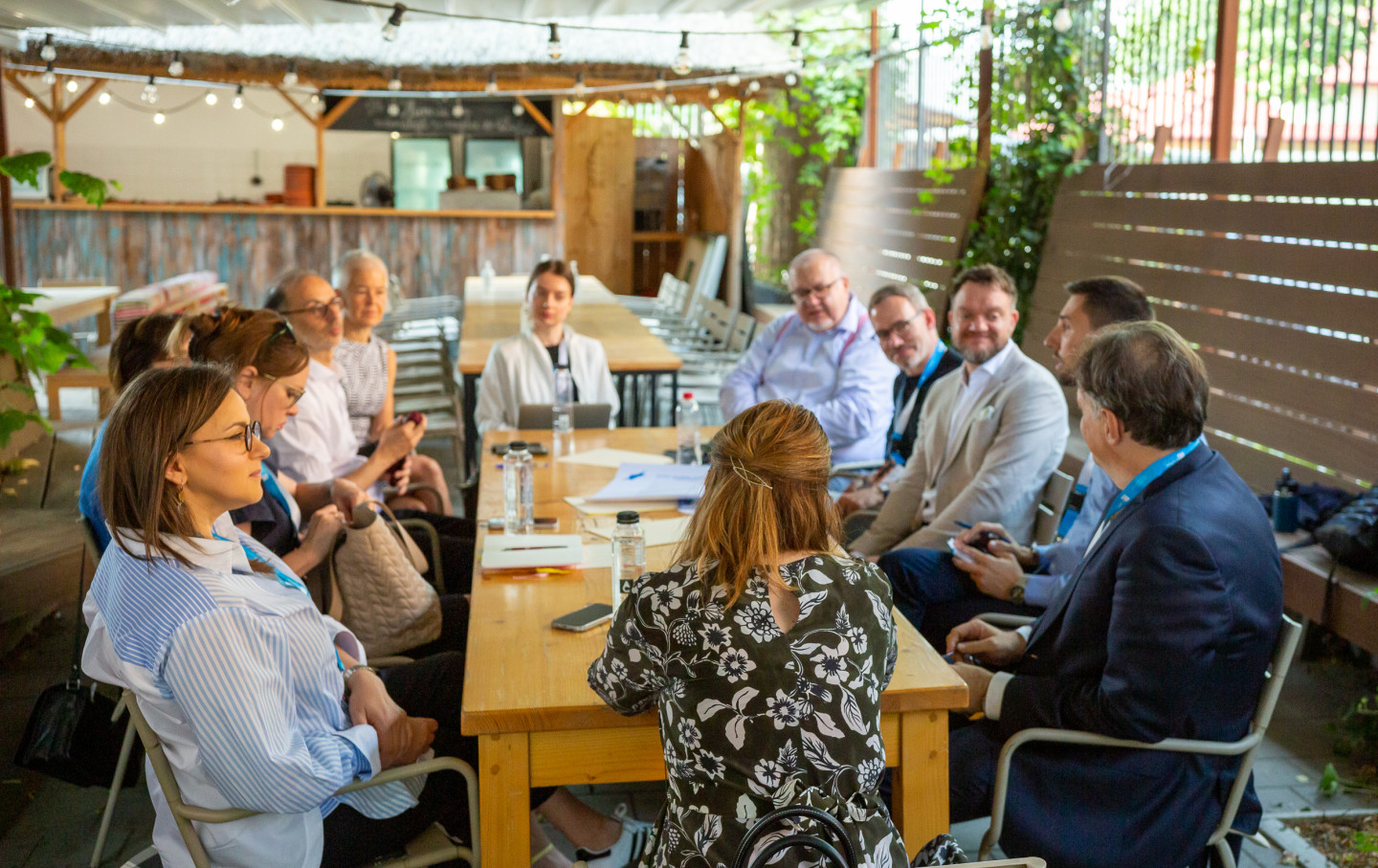
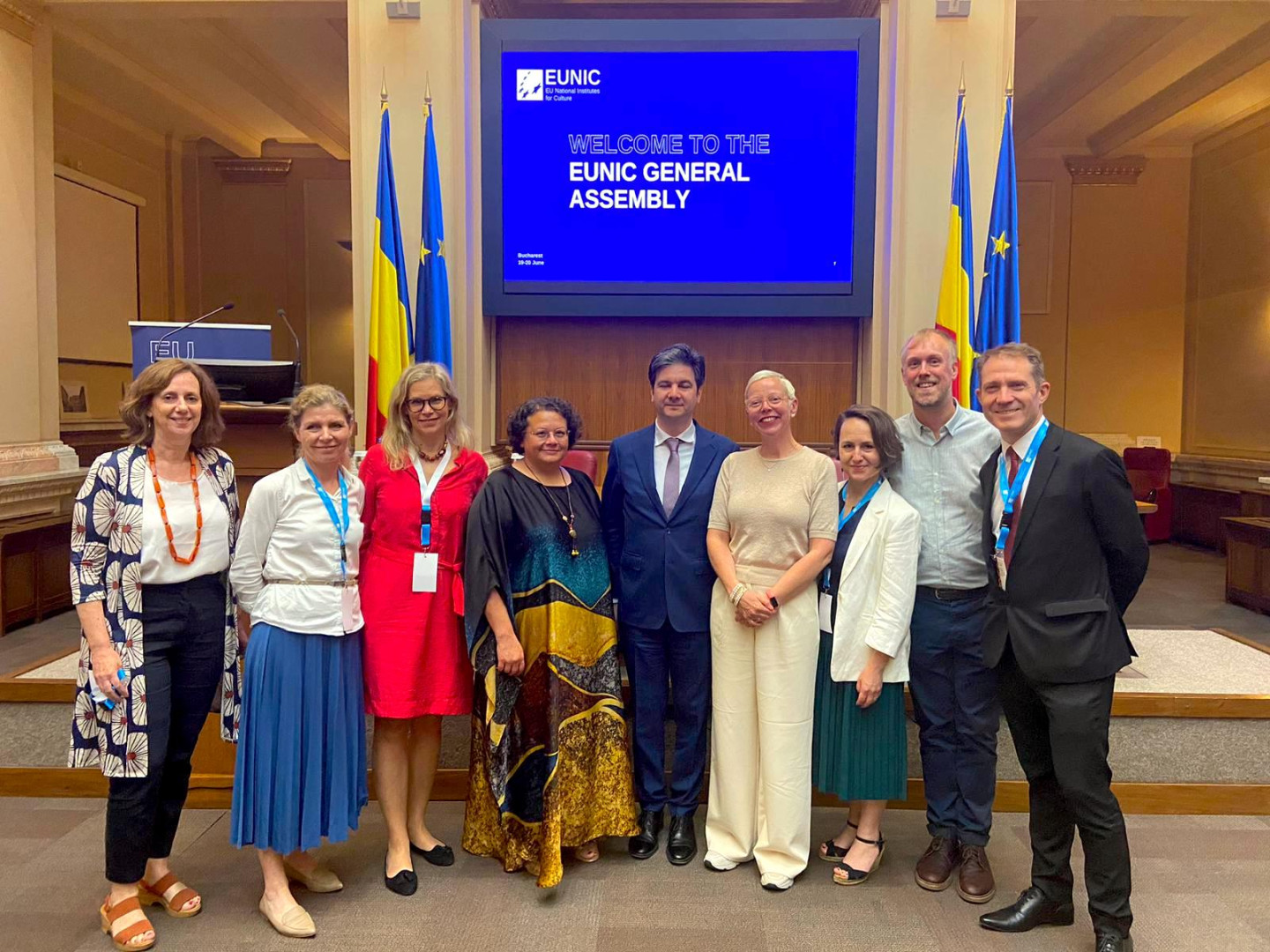
EUNIC General Assembly in Bucharest
On 19 and 20 June, the EUNIC General Assembly welcomed EUNIC members across the network to Bucharest. Topics discussed at the GA included shifting geopolitics and the impact on cultural relations work, continued support and solidarity with the Ukrainian Institute and dynamics in Moldova, and the refreshing of EUNIC's Strategic Framework.





The General Assembly was formally opened with the Presidency handover from Camilla Mordhorst (Danish Cultural Institute) to Liviu Jicman (Romanian Cultural Institute) as new President of EUNIC, thanking Camilla Mordhorst for her engagement as President. In his opening words, Liviu Jicman pointed out: ”Not only do we profit more if we align our individual organisations goals to the EUNIC Strategic Framework and the European cultural agenda, but the more we choose to speak with a common voice, the stronger we are.” In addition, the GA and elected new EUNIC Vice-President Kirsten van den Hul, Director of DutchCulture and elected to the Board of Directors were Hanna Lämsä from the Finnish Cultural and Academic Institutes and Mary Ann Cauchi from Arts Council Malta.
Looking back on the Knowledge Sharing Workshop for EUNIC heads and senior leaders that took place in Chemnitz in March and exploring how changing geopolitics impact the work of cultural relations practitioners, the outcomes of a recent study commissioned by ifa were presented at the GA to continue the proactive reflection of the role of the work of EUNIC members and the EUNIC network in light of the geopolitical contexts in which we operate. In conversation with Edward Knudsen (Hertie School and University of Oxford) co-author of the study New Geopolitics, Soft Power and International Cultural Relations, it was emphasised that the gap between ‘hard’ and ‘soft’ power is shrinking rapidly and that culture is being instrumentatalised in foreign policy because of geopolitical tensions.
What Europe stands out with in the world is the role of international cultural exchange. Europe’s real star is international cultural relations.
Edward Knudsen Hertie School and University of Oxford
This notion was also reiterated by Volodymyr Sheiko, Director General of the Ukrainian Institute, who elaborated on the avenues where further collaboration is needed, referring back to an online workshop co-hosted by the Ukrainian Institute and the EUNIC office in April, which brought EUNIC members together to discuss how to support the Institute in its various efforts. Volodymyr Sheiko called for a strong cultural policy to address misinformation and the influence of Russian policies in Ukraine and in other countries. The effect of the war in Ukraine is also felt in Moldova. Sergiu Prodan, Minister of Culture of Moldova, addressed the GA, underlining the work of cultural institutes at the forefront of providing support and emphasising culture as a beacon of hope and solidarity. Minister Prodan stated that collaboration with EUNIC is crucial in these times we are living in, ensuring every day that values such as democracy and the value of human life itself are promoted.
.Cultural diplomacy and the support of creative industries in Ukraine and Moldova are important factors that EUNIC supports. There are also numerous opportunities for regional cooperation through clusters involving more and more countries who want to be partners with the EU.
Nicolae-Ionel Ciucă President of the Romanian Senate
As EUNIC's current Strategic Framework is coming to an end in 2024, the GA was an opportunity to to review and consolidate the good progress the network has made and to collectively refresh the shared strategy. In small workshop groups, members engaged in an open and free discussion on our priorities as a network in updating the framework. Resulting from these discussions, the GA agreed that the current strategic framework is a good point of departure as a basis to refresh. The group work resulted in a number of strategic and concrete feedback to feed into updating the strategic framework, to make it clearer and more explicit about what EUNIC does, more accessible and more responding to the current state of the world.
The cluster roadmap presents a few key elements to move forwards with cluster development and in the autumn a series of resulting new measures will be announced. With the local cluster an active and influential one, the GA also included a live conversation on actions, dynamics, and developments with representatives from EUNIC Romania. The Romania cluster, under President Julien Chiappone-Lucchesi, showcased its innovative and collaborative approach, including its House of European Institutes initiative in Timișoara, which involved substantial joint activities. The discussion highlighted the importance of addressing local cultural needs, fostering EU connections, and balancing ambitious yet feasible projects.
